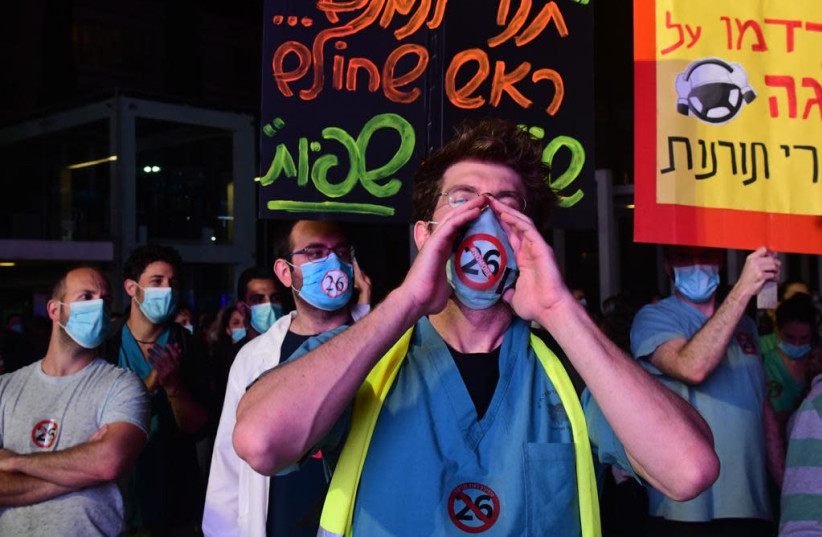Hundreds of medical interns and residents from across Israel handed in their letters of resignation on Monday, which will take effect in 14 days.
The interns worked at 35 hospital wards nationwide, according to KAN.
"If the outline for shortening shifts does not change, resignation letters will be submitted in the coming days in dozens of additional departments throughout the hospital in Israel," said the Mirsham union for medical residents.
Health Minister Nitzan Horowitz made a statement before the 8 p.m. news broadcast, in an effort to cancel the act, promising to roll out a plan to incorporate shorter shifts in 2022 and 2023.
“It seems that things are going in the right direction and we are happy about the minister's announcement,” the union responded, but are holding off on pulling back the resignation letters until a written outline, backed by adequate funding, is presented.

"We did not believe we would reach this difficult day," Mirsham said, according to N12, on the resignations.
"Our commitment is to our patients, those who put their lives in our hands - we can not continue to give them the medical care they deserve, we can not continue to endanger them and ourselves in 26-hour shifts."
The resignation is due to longstanding protests against the fact that they work 26-hour shifts, often without any break to rest or even eat or go to the bathroom for several hours, due to the immense overload in hospitals.
Discussions were held late Saturday night in an effort to quash the threat of the large-scale resignation, which came into effect Sunday morning.
As the residents, most of whom are affiliated with Mirsham, handed in their resignation letters last week, the Israeli Medical Association also attempted to prevent the drastic measure in talks with Health Minister Nitzan Horowitz, according to a report on Ynet.
Mirsham disbanded from the IMA, which has represented doctors in Israel since 1912, in order to become a voice for the young medical residents who often get overlooked in agreements between the Health and Finance ministries.
The crisis has been brewing since at least late September, with the threat of resignations looming since the beginning of October.
On October 17, medical students from all Israeli faculties marched in central Tel Aviv in support of hundreds of interns and residents who had already resigned their positions as part of the battle to shorten the length of hospital shifts.
Over 300 students, from Tel Aviv University, Ben-Gurion University of the Negev, Technion-Israel Institute of Technology, Ariel University and the Hebrew University of Jerusalem also signed the petition claiming they would resign – and as a result, decided to strike in support.
